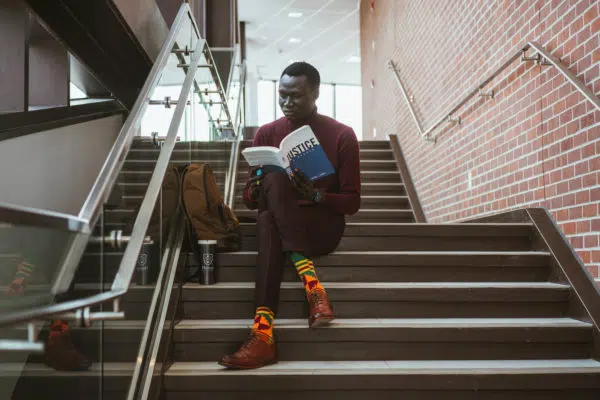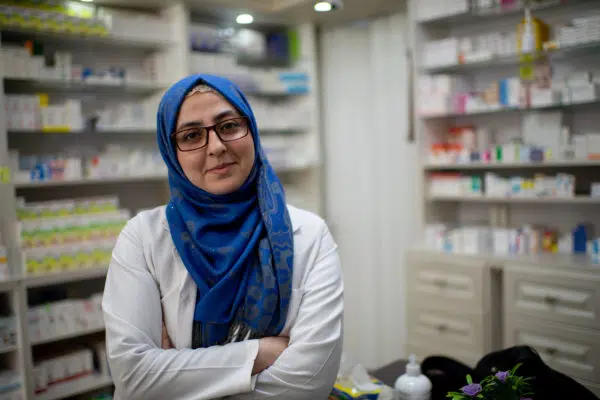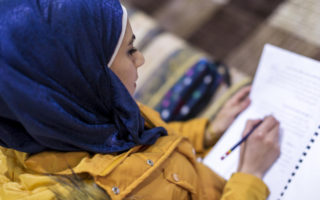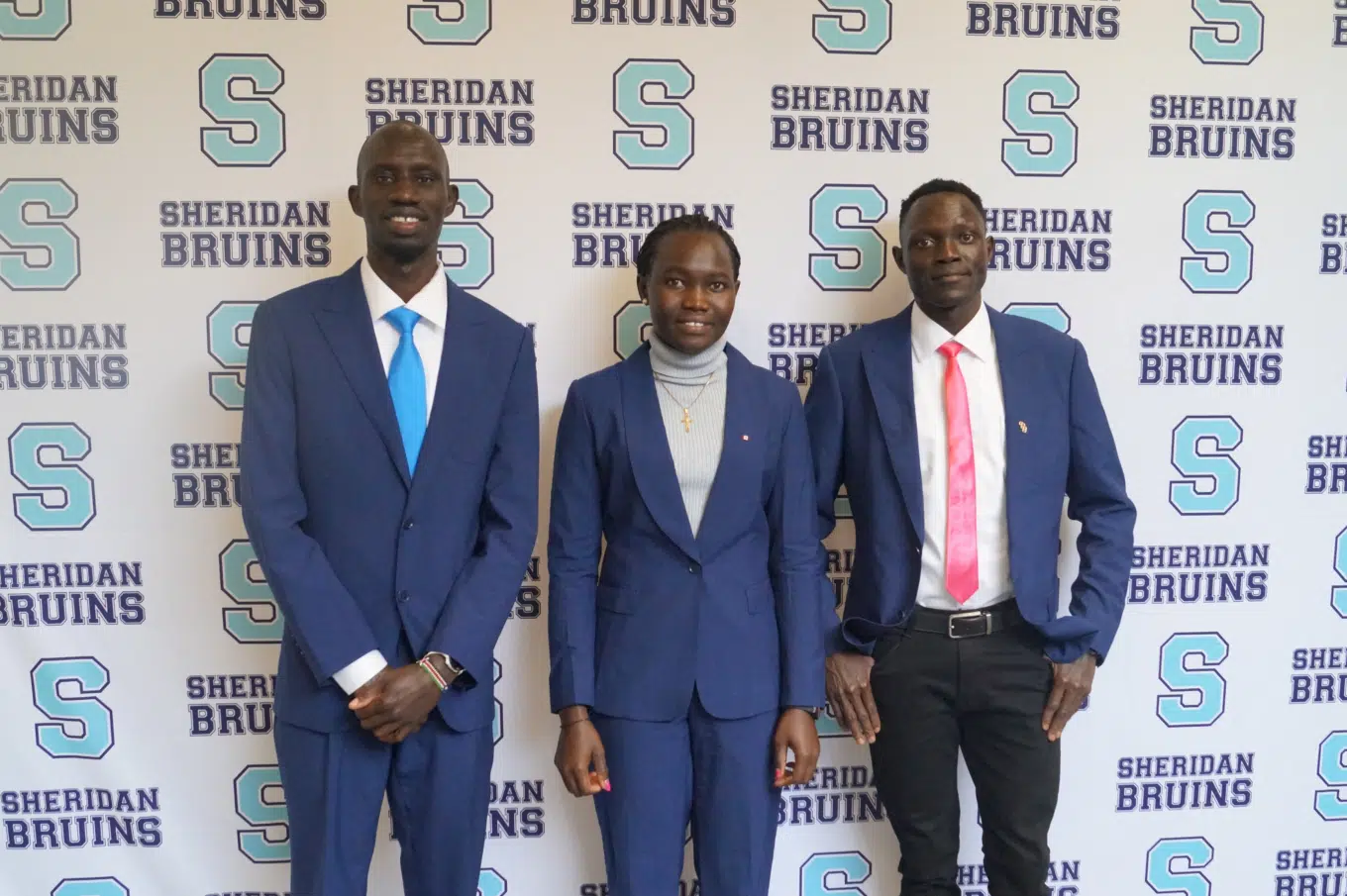
Left to right: James Chiengjiek, Rose Nathike and Paulo Lokoro. © UNHCR/Rohan Stritch
After a challenging start, Rose Nathike, Paulo Lokoro and James Chiengjiek are getting acclimatized to their new lives as athlete students at Sheridan College
By Gisele Nyembwe
OAKVILLE, Canada — As soon as you ask her about adjusting to life in Canada, Rose Nathike Lokonyen recalls the many times she and her fellow refugee Olympic athletes got lost in Oakville, an affluent suburb in Toronto.
“It was a bit difficult as we were still new,” the 29-year-old refugee athlete says, flashing a broad smile. “But as an athlete, you must find the route for training and know all your main points. With time and training every day, we ended up knowing where to go.”
Barely a year after they were resettled to Canada, Rose, and fellow athletes Paulo Amotun Lokoro, 30, and James Nyang Chiengjiek, 30, say they have now got used to their new lives, which they admit felt lonely and overwhelming during the first few weeks, with no friends or family nearby. They now boast about having discovered every nook and corner around their college and say they can even go by themselves to the African food store in Mississauga, another suburb in Toronto.
They are the first three refugees ever to be resettled to Canada through a joint pilot resettlement program between the UN Refugee Agency (UNHCR), Sheridan College and the World University Service Canada (WUSC). The unique pilot program recognizes sporting potential and athletic ability as a route for refugees to access tertiary education.
“I really appreciate all the help we received from staff at Sheridan College.”
Currently, they are in a class of 30 newcomers who are completing a bridging program in the English language and cultural communication and upping their computer skills before starting their two-year studies in social work sciences next fall. Their education is paid for by the International Olympic Committee (IOC).
Like Rose, Paulo and James admit that adjustment was a challenge in the early days after spending most of their lives in Kakuma camp, in northern Kenya. Kakuma camp is home to over 200,000 refugees from various African countries including South Sudan where Rose, Paulo and James are originally from.
For James isolating in his campus room for weeks at the height of Covid-19 was the most difficult thing to do. The days felt long and empty, he says.
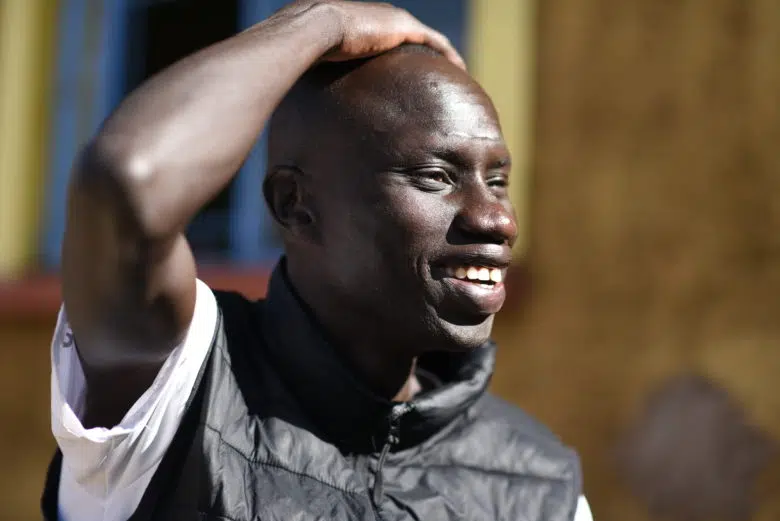
South Sudanese refugee and middle distance runner James Chiengjiek. © UNHCR/Benjamin Loyseau
“I really appreciate all the help we received from staff at Sheridan College,” James says. “We couldn’t interact with other students, and I had never experienced joining classes online. It was a struggle to figure things out on my computer. I felt like going back home those days.”
Paulo says the most daunting challenge for him was the “brutal” Canadian winter weather, the first such winter he had ever experienced.
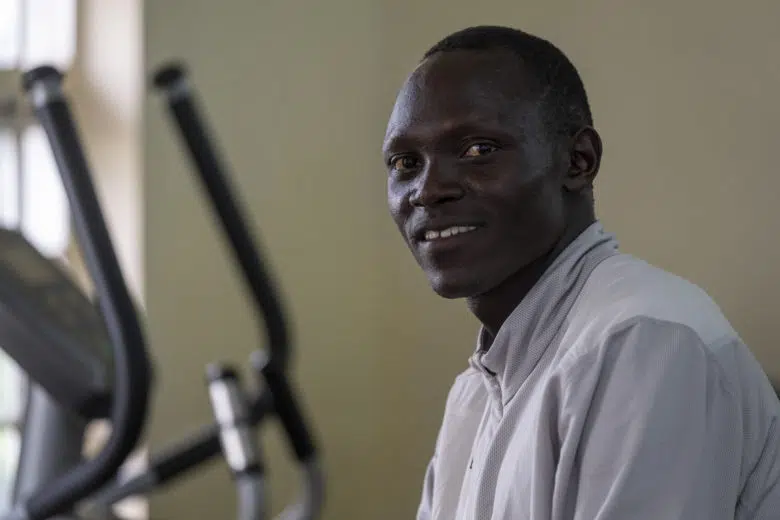
South Sudanese refugee and 1,500m runner Paulo Lokoro. © UNHCR/Sebastian Rich
“It was so cold and difficult to train outside. I used to wait for a while once inside for my fingers to defrost and touch something,” adds Paulo with a quiet voice.
He recalls walking for about three kilometres in freezing temperatures, going to buy his groceries as he didn’t know where to purchase and recharge digitally his bus card. “But now I know,” Paulo says triumphantly.
Undeterred by winter temperatures or technology challenges, and faced with a demanding schedule, Rose, James, and Paulo have quickly fallen into a routine that sometimes leaves them with little time to even call family back home or socialize with other students on campus.
They want to excel both at school and in their sport. They have their sights set on qualifying for the 2024 Summer Olympic Games in Paris. They are also training and hoping to compete in other middle distance championship races coming up shortly in Canada and the world.
“I am so grateful for what sport has brought to my life.”
But despite being busy, one thing has not changed for Rose, James, and Paulo. They still hope they can do something for the young aspiring refugee athletes in Kakuma camp who looked up to them. Their participation at the Olympic Games in Rio and Tokyo inspired many refugees and displaced people in Kenya, old and young, and others from all corners of the world. They hope their “protégés” in Kakuma camp will be lucky enough to follow in their footsteps and benefit from resettlement to a third country.
For Rose it’s about helping refugee girls to break out of cultural restrictions.
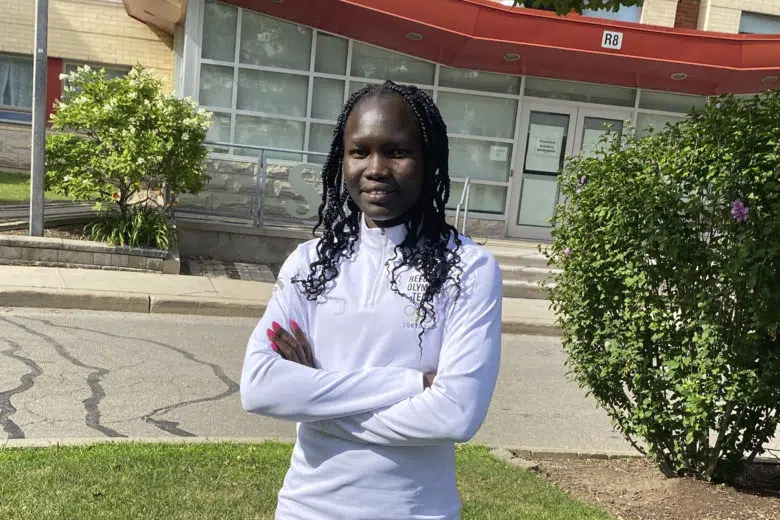
Refugee athlete and Olympian Rose Lokonyen fled violence in South Sudan when she was just 8 years old. Growing up with her family in Kakuma refugee camp in northern Kenya, she barely knew the talent she had.
© UNHCR/Jasper Nolos
“Because some of the cultures don’t allow them to engage in sports activities and to do what they want to be in future,” she adds. “When I reflect on how different my life would have been if I had not pursued sport, I have nothing but appreciation for all those who supported me along the way.”
“I am so grateful for what sport has brought to my life,” chimes in James.
“Education, the Olympics and a chance to come to Canada,” concludes Paulo.
With the pilot resettlement program launched, UNHCR and its partners are hoping to attract more sponsors and eventually scale up the program to benefit other elite refugee athletes.



